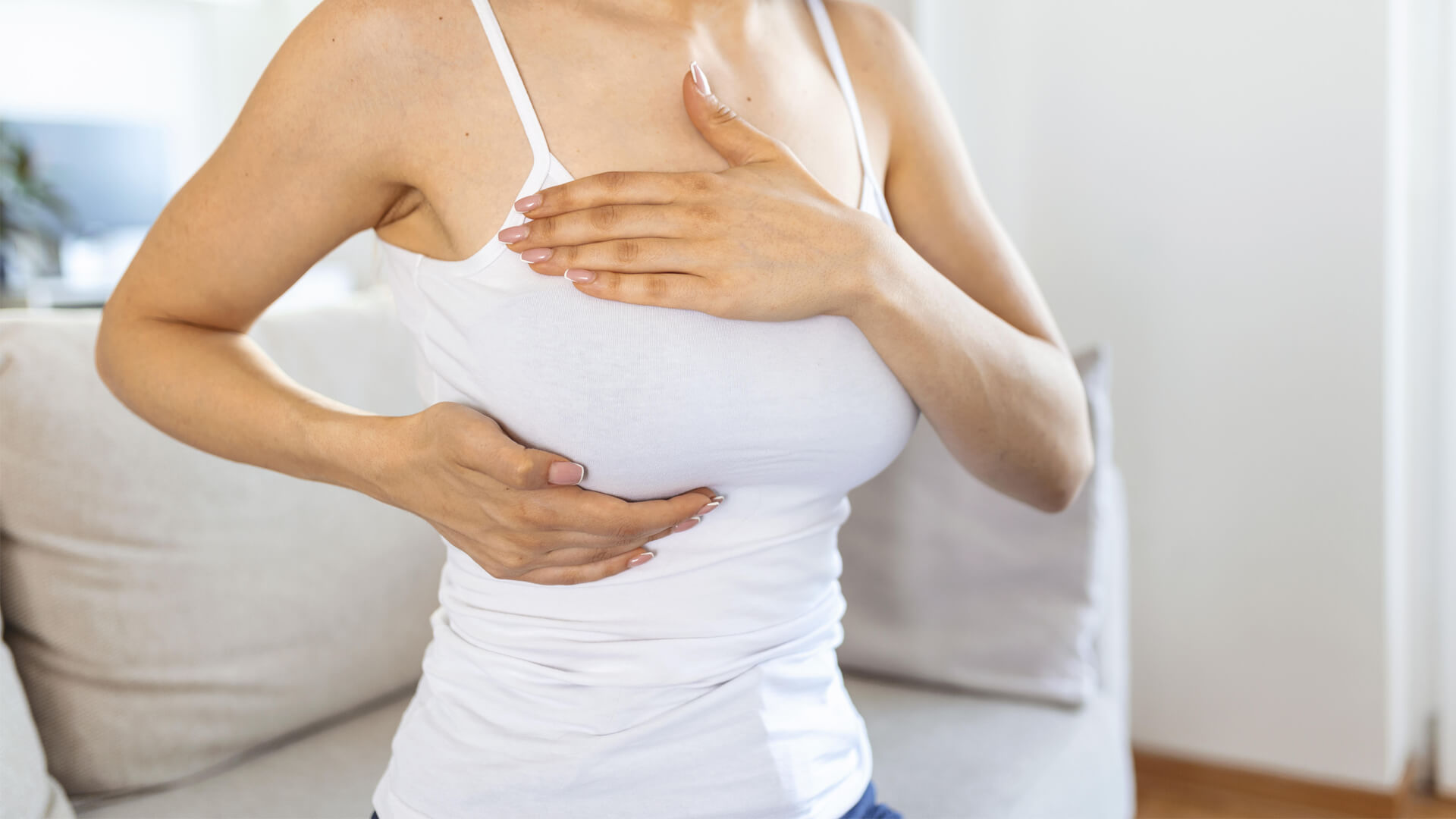What is genitourinary syndrome of menopause?
Genitourinary syndrome of menopause (GSM), formerly known as vaginal atrophy or atrophic vaginitis, refers to a group of symptoms and physical changes in the genitourinary tract (including the vulva, vagina, and lower urinary tract) that result from a decline in oestrogen levels, which often occurs during menopause. Symptoms can significantly impact a woman’s quality of life and may include the following:
- Vaginal dryness, itching, and burning
- Dyspareunia (painful intercourse)
- Vaginal discharge changes
- Urinary urgency, frequency, or incontinence

Impact of cancer treatments on GSM
Many breast cancer treatments, such as chemotherapy, can disrupt a woman’s hormonal balance, reducing oestrogen levels. As oestrogen plays a crucial role in maintaining the health and elasticity of vaginal and vulval tissues, its reduction can exacerbate GSM symptoms in postmenopausal women, or induce premature menopause in younger women. GSM symptoms affect approximately 70% of breast cancer survivors’ quality of life (compared with 50% of the general population).
Effectiveness of laser therapies
Various commonly used GMS treatment options contain oestrogen. However, women with breast cancer are not encouraged to use oestrogen treatments due to the associated increased risk of cancer recurrence. As a result, many medical studies have investigated the effectiveness of hormone-free vaginal laser therapies, including MonaLisa Touch, for reducing GMS symptoms in breast cancer patients.
Pearson et al. (2019) studied 26 postmenopausal breast cancer survivors experiencing GSM symptoms. The majority of study participants had received anti-oestrogen treatment during their breast cancer journey. Each woman received three laser treatments, each four weeks apart, and completed self-report questionnaires regarding their symptoms. This study found that breast cancer survivors experienced a significant improvement in dryness, burning, itchiness, dyspareunia, and dysuria (painful urination) as a result of vaginal laser treatment.

These findings are repeated in numerous other studies. Quick et al. (2022) studied 59 breast cancer survivors, each receiving three laser therapy treatments. A one-year follow-up (including 39 of the 59 participants) and a two-year follow-up (33 of the 59 participants) were conducted, and the assessed indexes indicated an increase in sexual function that was sustained post-treatment. This demonstrates that laser therapy can provide long-term benefits to breast cancer patients with regard to GMS symptoms.
D’Oria et al. (2022) adopted a larger sample size of 635 by conducting a systematic review of 9 studies investigating the impact of laser therapy on GSM symptoms in breast and gynaecological cancer survivors. This review found that laser treatment is a safe and effective option for breast and gynaecological cancer survivors, improving symptoms, increasing life quality, and resulting in better sex life.
The results of these medical studies – and many others – are exciting, indicating that there are effective and safe options for GMS reduction in breast cancer survivors. The impact of vaginal laser therapy is a growing area of research, and the specialists at Northside Gynaecology are committed to remaining at the forefront of gynaecological research to provide services supported by the most recent and reliable evidence.
MonaLisa Touch services are offered by specialist nurses at Northside Gynaecology. MonaLisa Touch is a non-surgical therapy that uses a fractional CO2 laser to stimulate collagen production, providing relief for GMS symptoms. The specialist nurses perform MonaLisa Touch treatment in a gentle and compassionate manner, understanding the complexities of breast cancer care. If you are a breast cancer survivor and are experiencing vaginal discomfort or pain as a result of treatment, visit Northside Gynaecology with a referral from your GP for personalised support, guidance, and treatment.